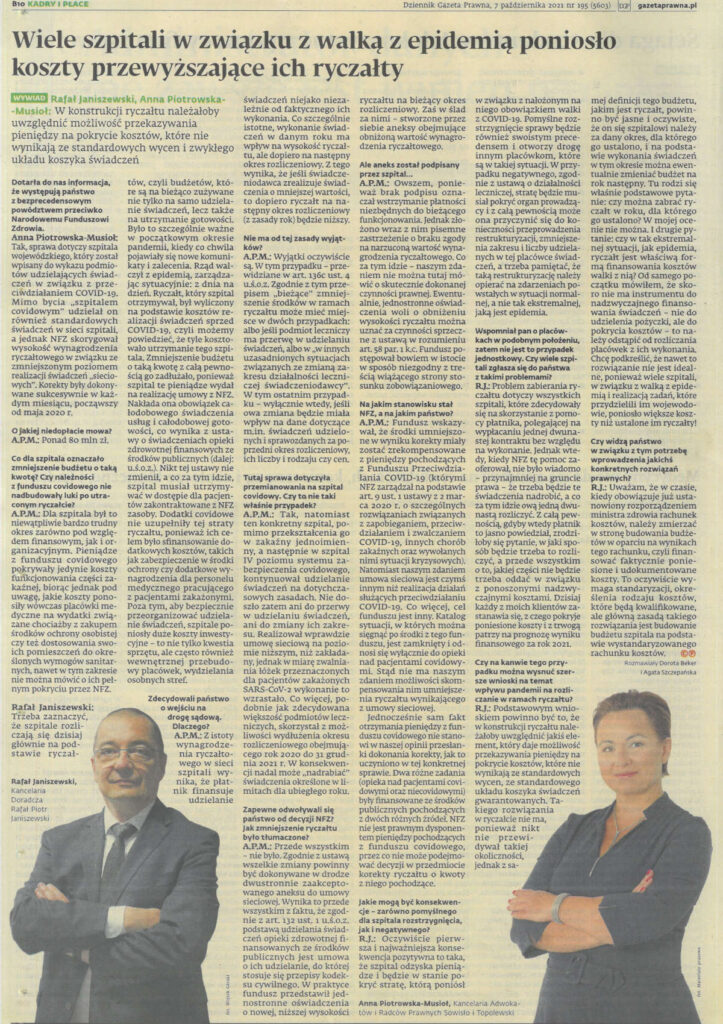On 7 October 2021, in its supplement “Kadry i Płace” [“HR and Payroll”] the “Dziennik Gazeta Prawna” daily (issue No. 195/2021) published an interview with attorney-at-law Anna Piotrowska-Musioł entitled: “Many hospitals incurred costs exceeding their lump sum amounts in connection with the fight against the epidemic “.
The issue raised in the interview concerns a precedent-setting action brought by the Law Firm on behalf of a regional hospital against the National Health Fund for payment of nearly PLN 90 million, which the Fund did not disburse to the hospital during the state of the epidemic in connection with its transformation into an infectious disease hospital dedicated to treating patients with SARS CoV-2 infection. This was a lump-sum remuneration to which the entity was entitled on account of its membership in the system of basic hospital provision of healthcare services (hospital network). The Fund took the position that the hospital did not perform the assumed level of “network” services, and instead received remuneration from a special Covid Fund intended to finance services for patients hospitalized with SARS CoV-2 virus infection.
However, despite its transformation into a dedicated COVID-19 hospital and then into a level four hospital in the COVID-19 containment system, the hospital continued to provide health care services on its previous terms and conditions (thus there was no interruption in the provision of health care services) and it did not change the scope of services provided (it continued to maintain the performance potential to provide health care services in all the scopes contracted under the contract for the provision of health care services within the basic system of securing hospital health care services). Although the performance of the network contract was lower than expected, the performance increased as beds for SARS-CoV-2 infected patients were freed. Moreover, like the vast majority of hospitals in Poland, it took advantage of the possibility of extending the settlement period covering the year 2020 until 31 December 2021. As a result, it can still “make up” the services set in the limits for the previous year.

By clicking "Accept cookies", you consent to the storage of cookies on your device in order to improve site navigation, analyze the use of the site and help with our marketing activities.